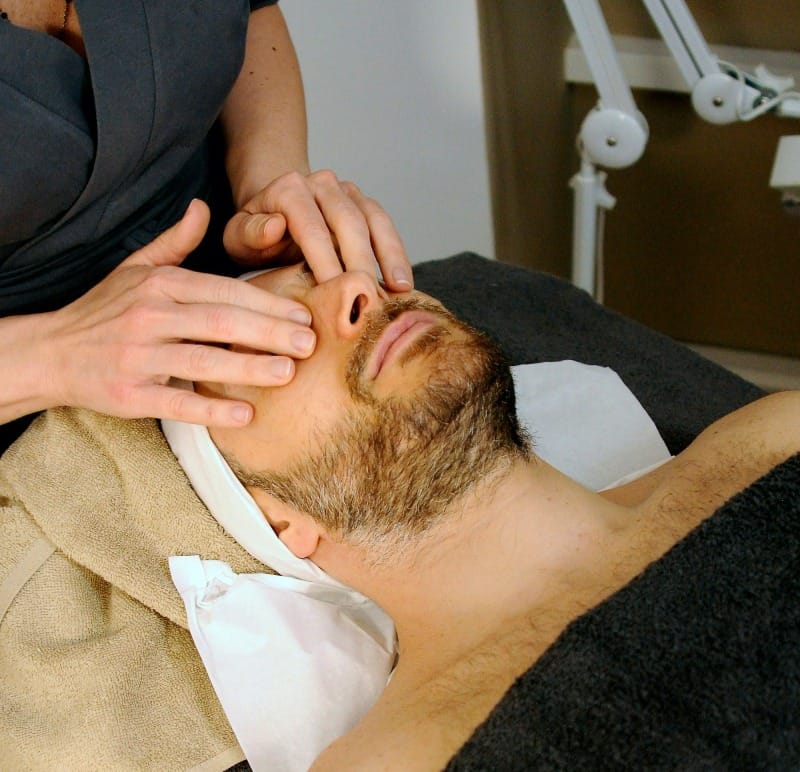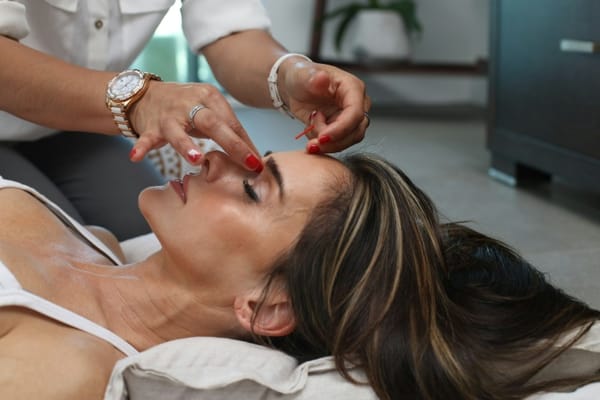Massage therapy has been used for centuries to promote relaxation and healing. Today, scientific research is uncovering the many ways massage can benefit both physical and mental health. From reducing stress to managing chronic pain, massage therapy offers a holistic approach to enhancing overall well-being. Let's explore some of the key benefits that make massage a valuable addition to your wellness routine.
Stress reduction and relaxation
One of the most well-known benefits of massage therapy is its ability to reduce stress and promote relaxation. During a massage, your body releases endorphins - natural chemicals that help you feel good and reduce pain. At the same time, levels of stress hormones like cortisol decrease[1]. This combination can lead to:
- Lowered heart rate and blood pressure
- Reduced muscle tension
- Improved mood and sense of well-being
- Better sleep quality
Regular massage sessions can help manage chronic stress, which is linked to numerous health issues including anxiety, depression, and cardiovascular disease.
Pain management
Massage therapy can be an effective tool for managing various types of pain, both acute and chronic. Research has shown massage to be beneficial for conditions such as:
- Lower back pain
- Neck and shoulder pain
- Headaches and migraines
- Arthritis
- Fibromyalgia
A 2016 study found that massage therapy should be strongly recommended as a pain management option, particularly for lower back pain and shoulder pain[2]. By reducing muscle tension, improving circulation, and stimulating the release of pain-reducing chemicals in the body, massage can provide natural relief without the side effects associated with some medications.
Improved circulation and immune function
The manipulation of soft tissues during massage helps improve blood flow throughout the body. This enhanced circulation can have several positive effects:
- Faster delivery of oxygen and nutrients to muscles and organs
- Improved removal of metabolic waste products
- Enhanced lymphatic drainage, which supports immune function
Some studies suggest that regular massage may boost the immune system by increasing the activity of natural killer cells, which help fight off viruses and other pathogens[3].
Enhanced flexibility and range of motion
Massage therapy can help improve flexibility and range of motion by:
- Reducing muscle tension and adhesions
- Increasing joint mobility
- Improving the production and circulation of joint lubricating fluids
This can be particularly beneficial for athletes, people recovering from injuries, or those with conditions that affect mobility. Improved flexibility not only enhances physical performance but also reduces the risk of future injuries.
Mental health and emotional well-being
The benefits of massage extend beyond the physical realm. Regular massage therapy has been shown to have positive effects on mental health and emotional well-being, including:
- Reduced symptoms of anxiety and depression
- Improved mood and emotional regulation
- Enhanced body awareness and self-esteem
- Reduced feelings of fatigue and burnout
A 2010 meta-analysis found that massage therapy can significantly reduce symptoms of depression, with effects comparable to those of psychotherapy[4].
Massage therapy offers a wide range of benefits that can contribute to your overall well-being. Whether you're looking to manage stress, alleviate pain, or simply enhance your quality of life, incorporating regular massage into your wellness routine can be a powerful step towards better health. As with any health intervention, it's important to consult with a healthcare professional to determine if massage therapy is appropriate for your individual needs and conditions.
References:
[1] Field T, et al. Cortisol decreases and serotonin and dopamine increase following massage therapy. Int J Neurosci. 2005;115(10):1397-1413.
[2] Crawford C, et al. The Impact of Massage Therapy on Function in Pain Populations—A Systematic Review and Meta-Analysis of Randomized Controlled Trials: Part I, Patients Experiencing Pain in the General Population. Pain Med. 2016;17(7):1353-1375.
[3] Rapaport MH, et al. A preliminary study of the effects of repeated massage on hypothalamic-pituitary-adrenal and immune function in healthy individuals: a study of mechanisms of action and dosage. J Altern Complement Med. 2012;18(8):789-797.
[4] Hou WH, et al. Treatment effects of massage therapy in depressed people: a meta-analysis. J Clin Psychiatry. 2010;71(7):894-901.
Citations:
[1] https://healingwithpt.com/things-you-should-know/6-research-based-benefits-of-massage-therapy/
[2] https://www.aromahealthbeauty.ie/blog/benefits-of-massage-for-wellbeing
[4] https://trafft.com/spa-quotes/
[5] https://asiamd.com/2023/11/28/health-benefits-of-massage-for-your-wellbeing/
[6] https://www.ewmotiontherapy.com/blog/benefits-massage-therapy
[7] https://www.amtamassage.org/about/news/research-supports-massage-for-mental-health/
[8] https://www.ncbi.nlm.nih.gov/pmc/articles/PMC5564319/
[9] https://mblexguide.com/boost-your-massage-practice-with-testimonials-and-reviews/















Member discussion